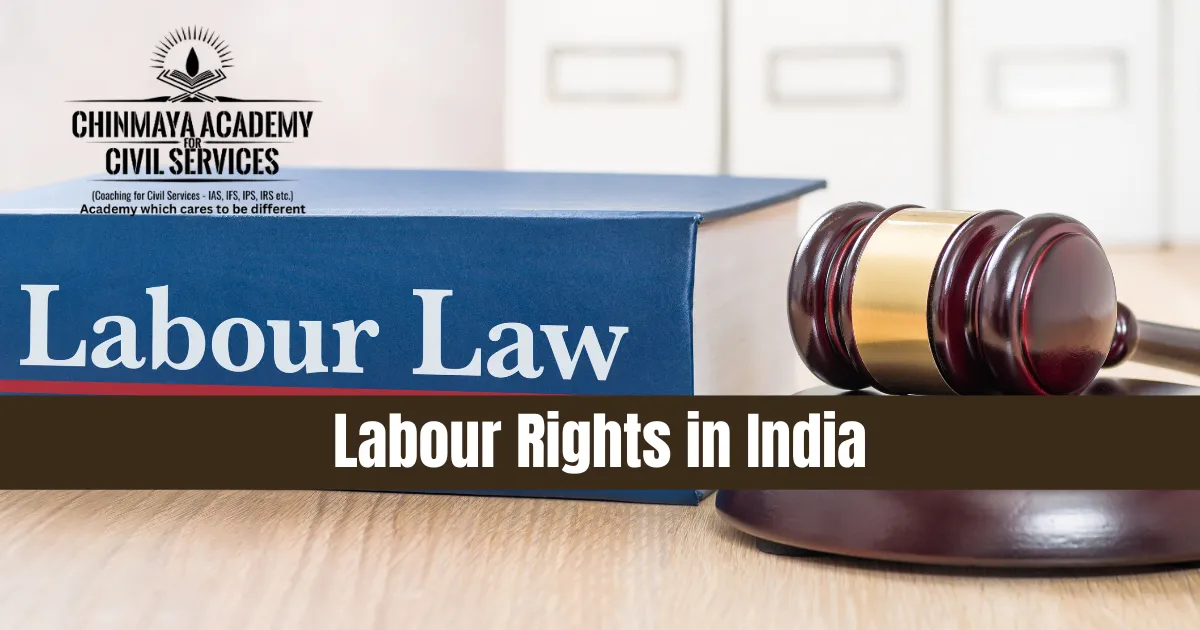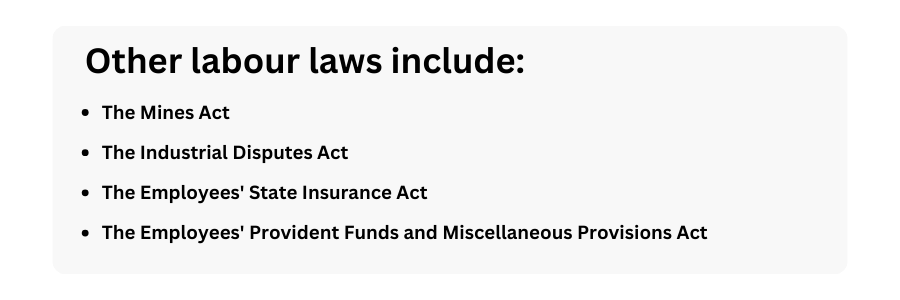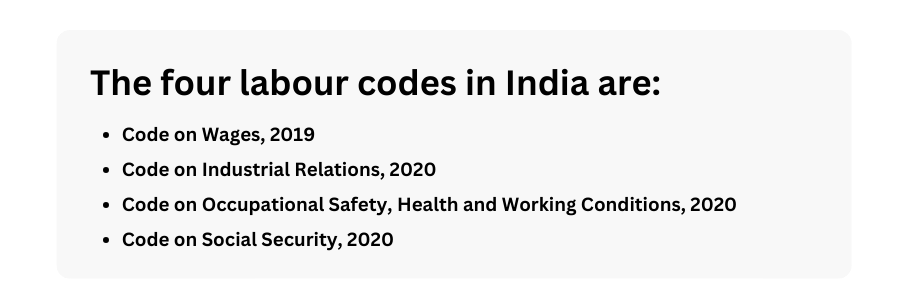
The Constitution of India guarantees certain fundamental rights to all citizens, including the right to work, the right to fair wages, the right to form unions, and the right to social security.
Some important labour laws in India
- Minimum Wages Act, 1948
- Factories Act, 1948
- Payment of Wages Act, 1936
- Payment of Bonus Act, 1965
- Equal Remuneration Act, 1976
- Maternity Benefits Act, 1961
The Minimum Wages Act, 1948
- sets the minimum wages that must be paid to workers in various industries and occupations.
The Factories Act, 1948
- regulates the working conditions in factories, including health and safety standards, working hours, and overtime pay.
The Employees’ Provident Funds and Miscellaneous Provisions Act, 1952
- provides for a provident fund scheme for employees in certain industries.
The Maternity Benefit Act, 1961
- provides for maternity leave and benefits to women employees.
In addition to these central laws, there are also a number of state laws that protect labour rights. For example, the Tamil Nadu Shops and Establishments Act, 1988
- regulates the working conditions of employees in shops and establishments in Tamil Nadu.
Despite the existence of these laws, there are still many challenges to enforcing labour rights in India.
- Many workers in India are employed in the informal sector, which is not subject to the same labour laws as the formal sector.
- Many employers are not aware of their legal obligations under labour laws.

The government of India has taken a number of steps to improve the enforcement of labour rights. These steps include setting up a dedicated enforcement agency, the Labour Enforcement Directorate, and increasing the number of labour inspectors. The government has also launched a number of awareness campaigns to educate employers and workers about their rights and responsibilities under labour laws.

These codes consolidated 29 central labour laws. However, the implementation process is delayed because states are yet to finalize their rules under these codes.
Some features of labour law include:
- Right to work of one’s choice
- Right against discrimination
- Prohibition of child labour
- Just and humane conditions of work
- Social security
- Protection of wages
- Redress of grievances
- Right to organize and form trade unions
- Collective bargaining
- Participation in management
 Chinmaya IAS Academy – Current Affairs Chinmaya IAS Academy – Current Affairs
Chinmaya IAS Academy – Current Affairs Chinmaya IAS Academy – Current Affairs
